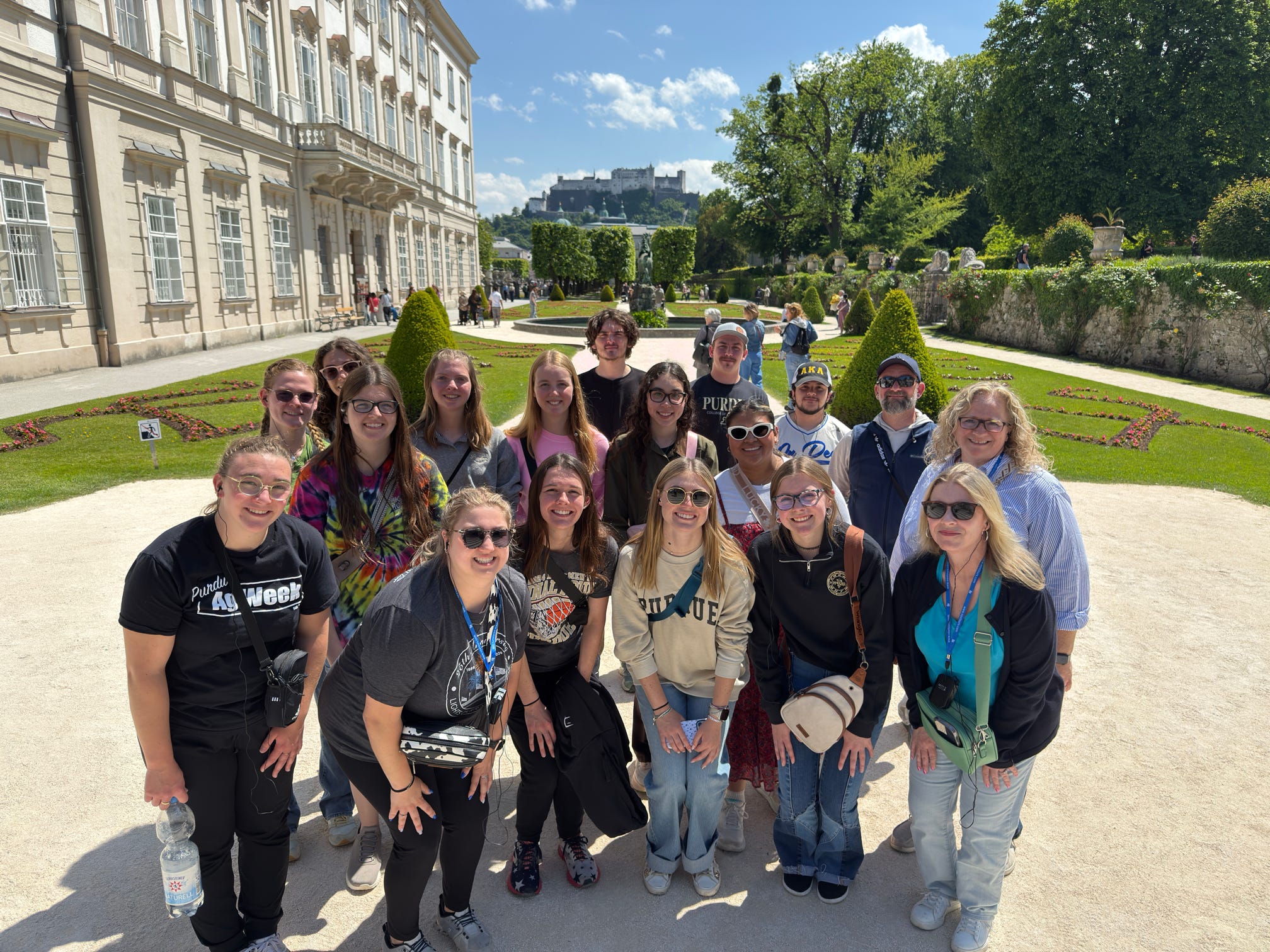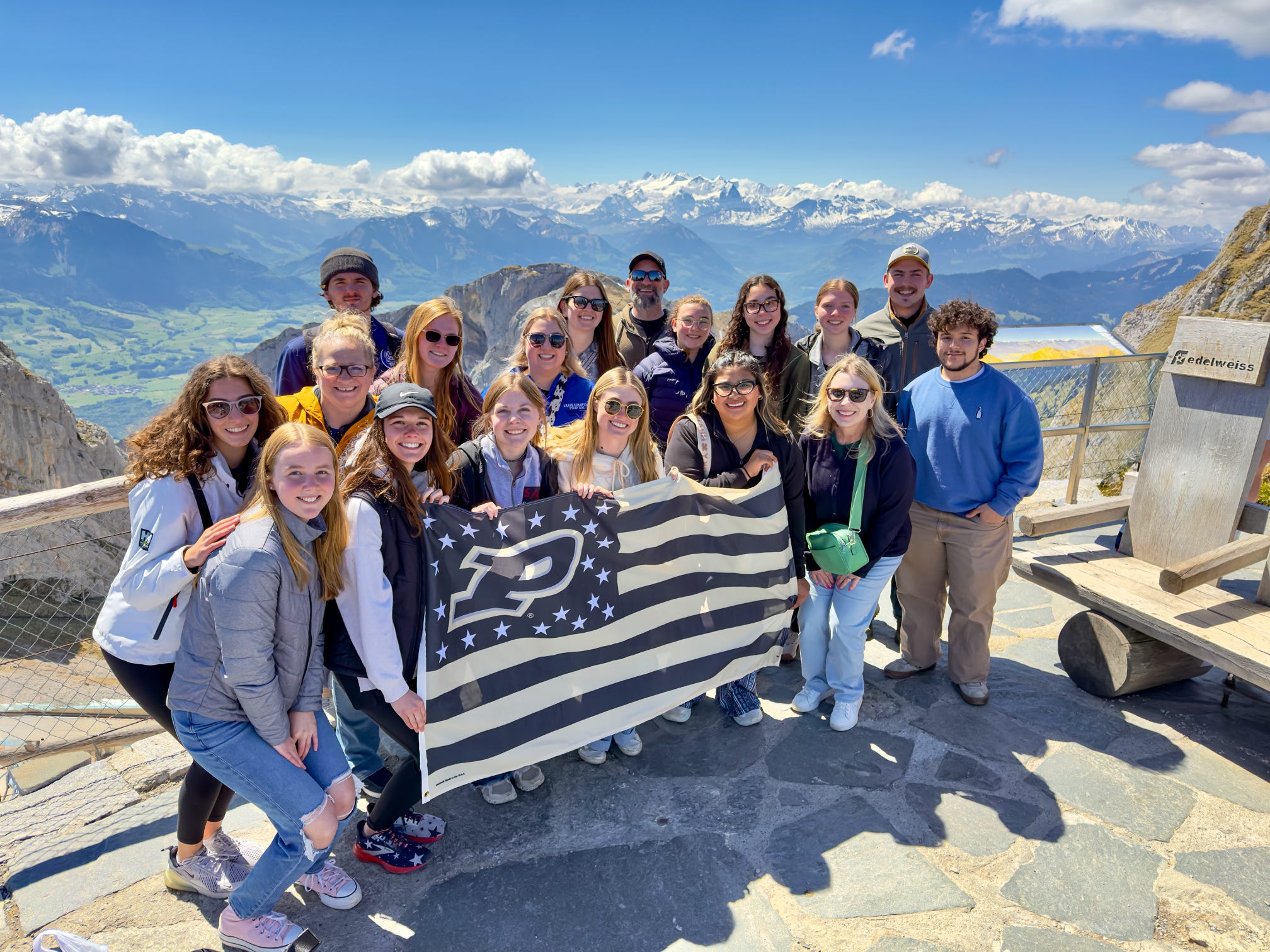
AGricultural Traditions in the Alps
Chrissie Strong, ag econ advisor, co-led a group of 16 Boilermakers on the Alpine Adventure Study Abroad with Assistant Professor of Animal Sciences, Dr. Stacy Zuelly. The students spent 10 days exploring agriculture in Austria, Germany, Switzerland and Liechtenstein. Top highlights of the trip included a tour of the Horsch-Leeb Plant in Landau, Germany; a stop at the Lamplhof Farm (farm-to-table beef farm and meat retail store) near Bavaria, Germany; a visit to the Hallein salt mines and Salzburg City Tour; and the presentation at Agroscope, Swiss Institute for Agricultural Research in Fribourg, Switzerland.
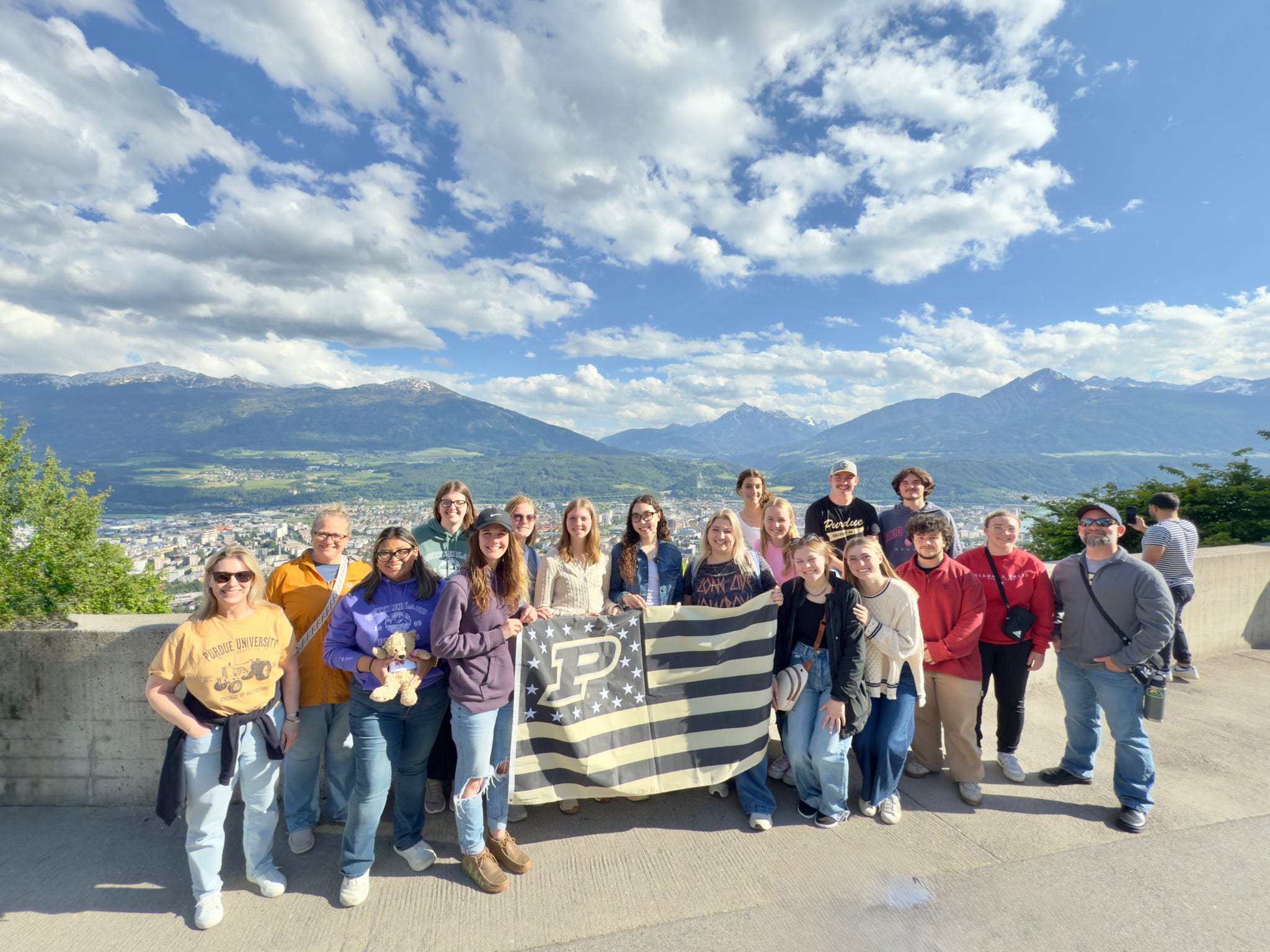
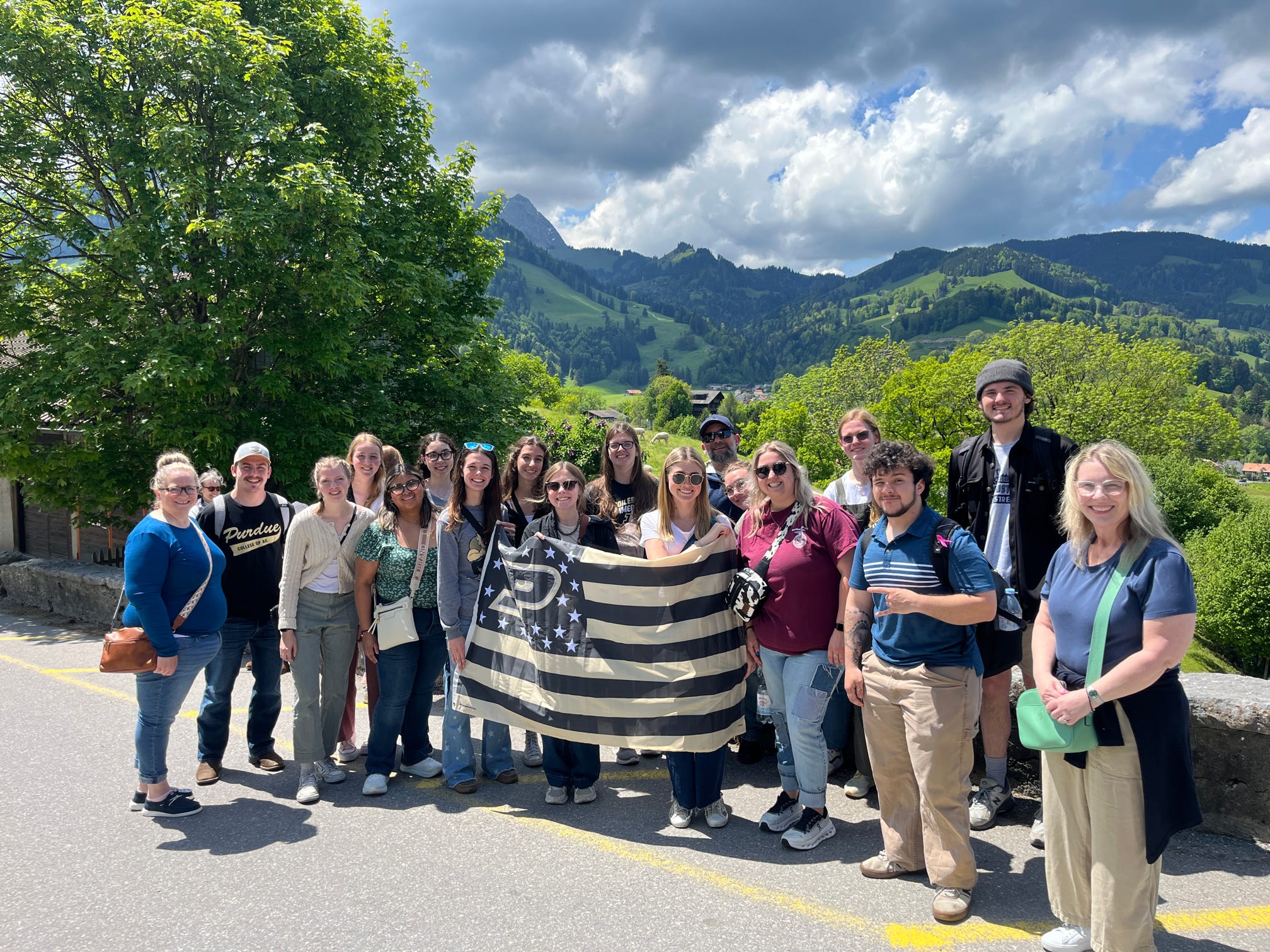
Riley Baker (Sophomore, Agricultural Economics; South Windsor, CT) shared, “During our Alpine Adventure in Agriculture, we visited many cities across four countries: Switzerland, Austria, Liechtenstein and Germany. Each day, we explored a variety of important agricultural sites, including organic vegetable farms, cut-flower farms, water buffalo operations, small family farms, community gardens, industrial agricultural manufacturers and more. At these stops, locals enthusiastically shared their specific practices and how they differ from those in other parts of the world, such as the impact of European Union regulations on organic farming. In addition to agricultural practices, we learned about the region’s history through visits to Dachau and other historic sites. Overall, I highly recommend studying abroad, as it provides a broader understanding of global practices.”
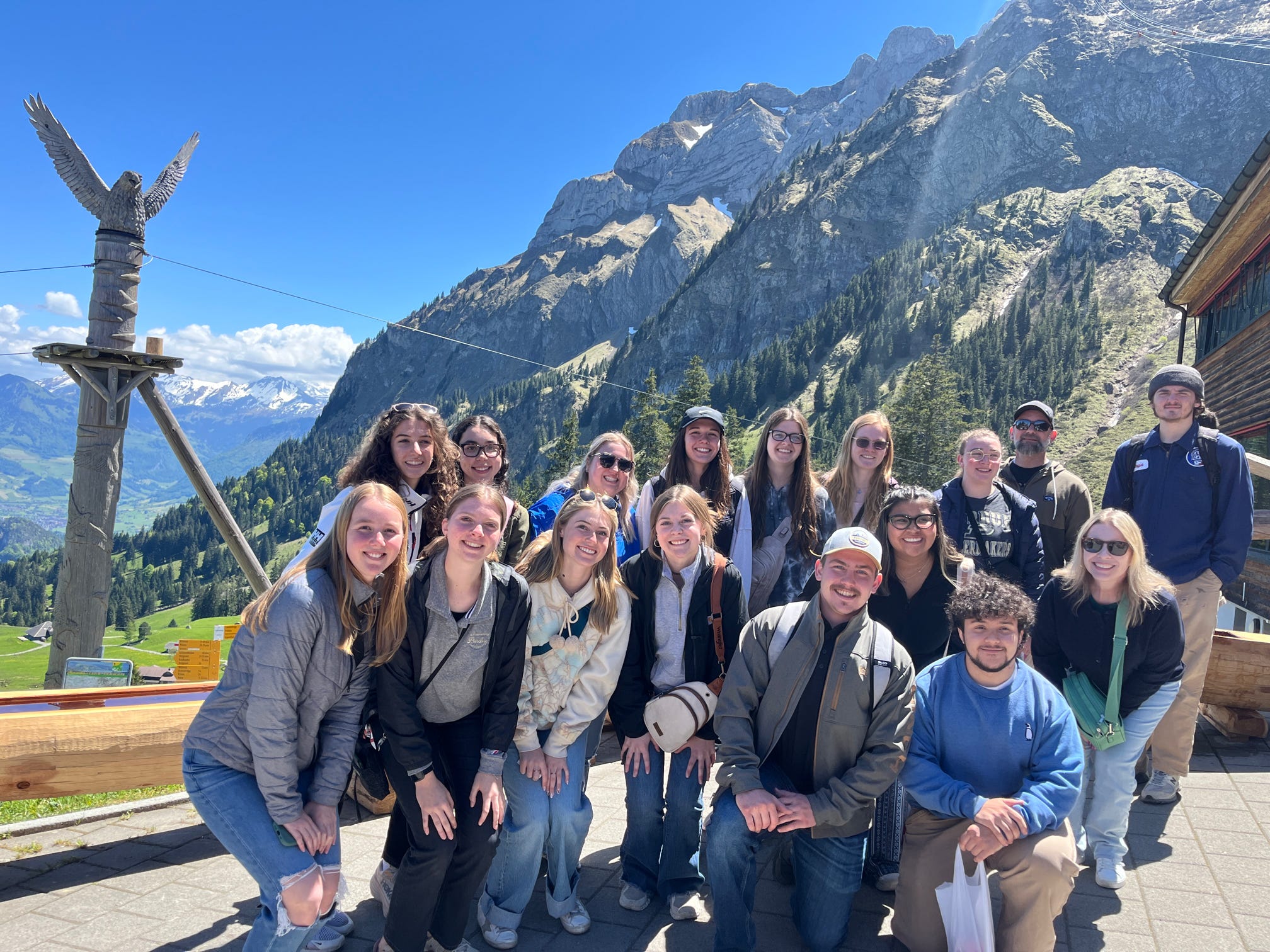
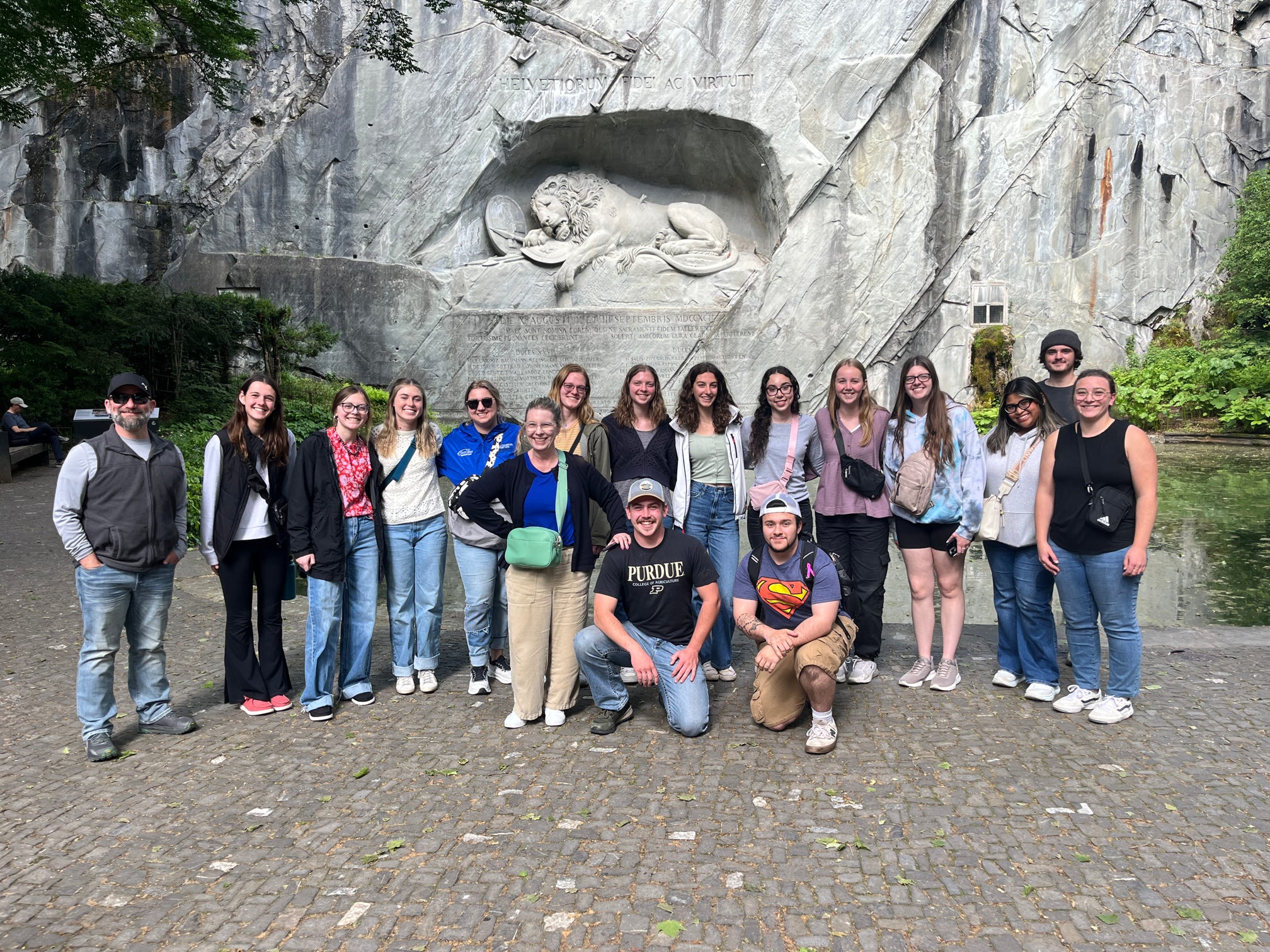
Bridget Simone (Sophomore, Agricultural Economics; South Burlington, VT) added, “Studying abroad on the Alpine Adventures trip was an amazing experience that opened my eyes to European agriculture. We visited different agricultural and production plants, including a water buffalo farm, an organic flower farm, the Horsch-Leeb factory and a regenerative beef farm. From these visits, I learned that European farmers hold strong values around sustainability, climate change and animal welfare. For example, Switzerland tracks its nitrogen emissions per region and sets strict farming guidelines to decrease greenhouse gases. Additionally, I noticed that it was common for European farmers to manage more diverse crops. The white asparagus farm we visited towards the end of the trip used extra fields to grow strawberries, and they filled their barn with growing hogs. This strategy of farm diversification allowed their business to be more resilient. Overall, studying abroad was a very positive experience, and it gave me a new perspective on our agricultural practices in the US. If given the chance, I would study abroad again as I feel that I gained valuable skills in independence, critical thinking and allowing myself to be curious.”
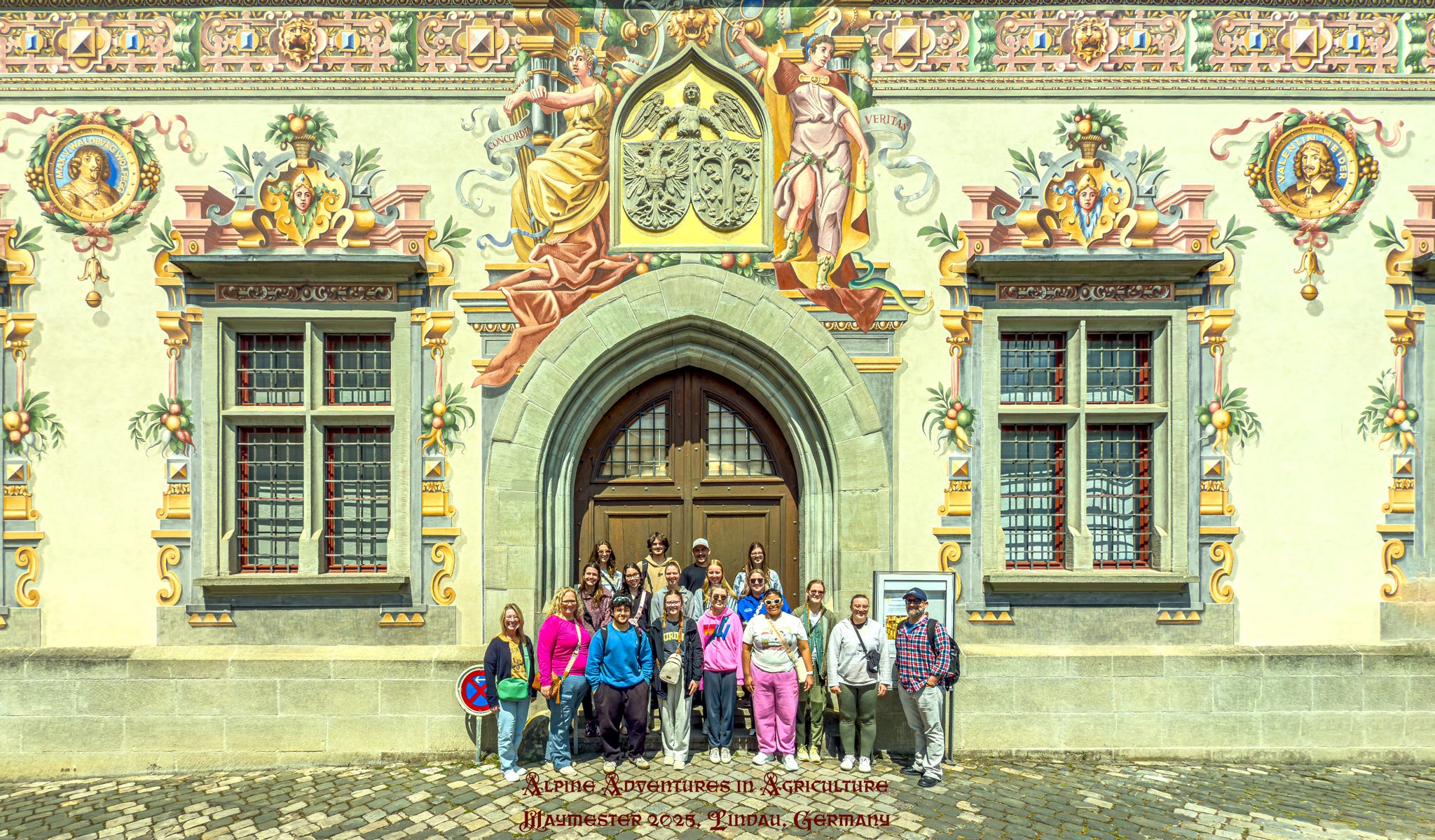
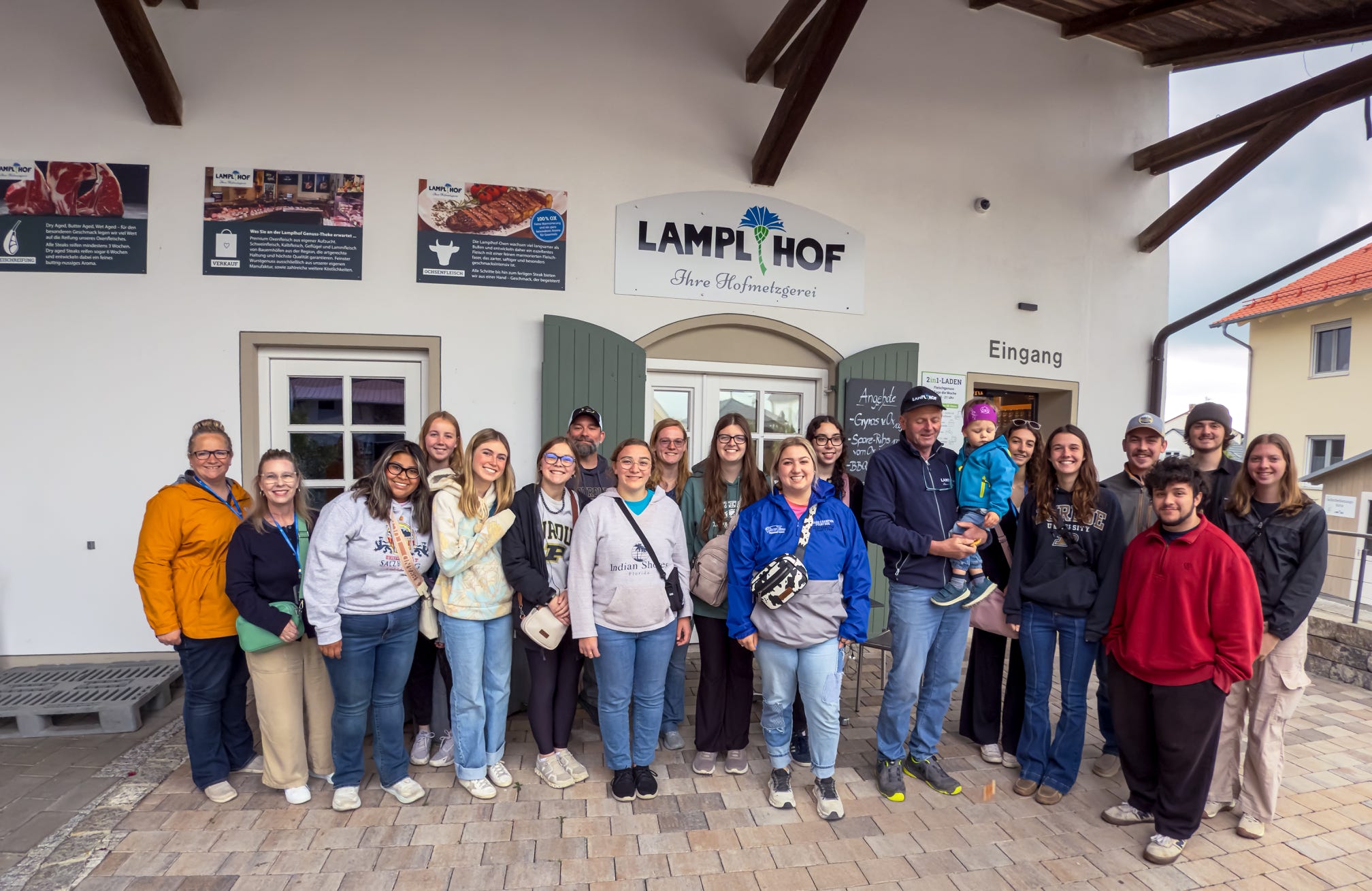
Strong summarized, “Most of our site visits were to family-owned businesses that had been around for generations. These businesses were all forward-thinking in their approach to engaging with local and national trade while preserving their traditions. One of the favorite stops was to a breeder of Bernese Mountain dogs, where the students made lots of four-legged friends. The Swiss Alps are known for their cheese and chocolate, which we were able to experience at factories for both. We got to try our hands at harvesting white asparagus and delicious strawberries. We also visited a flower farm that ships across the country and has an on-site shop with no clerks – customers pay by phone. One interesting stop was to a family-owned orchard in Austria, where they use their fruit to make schnapps. Our time in Germany had us visit Neuschwanstein Castle, which is what Walt Disney modeled Cinderella’s castle after. Our final day was one of great reflection, having toured the World War II concentration Camp, Dachau.”
